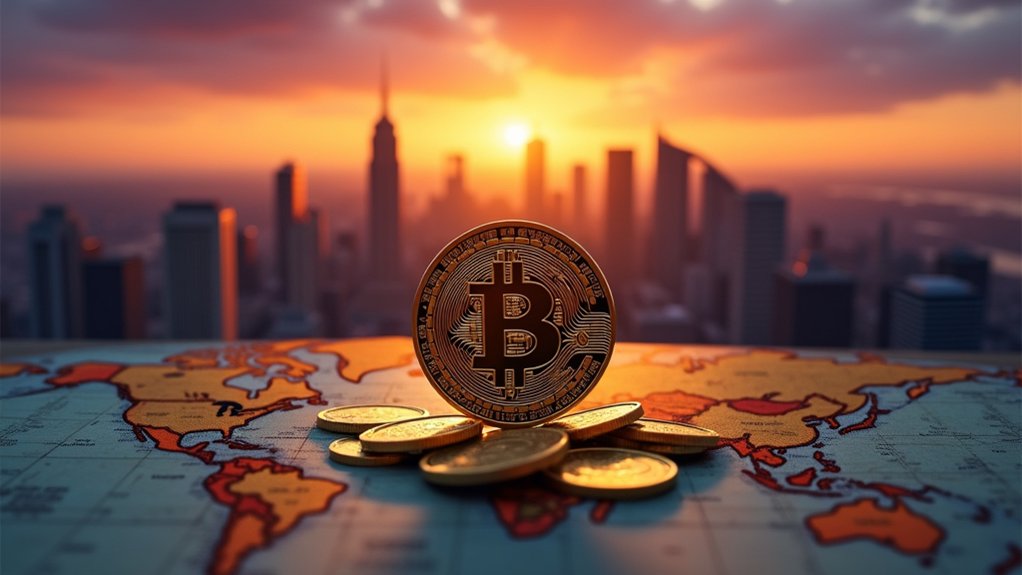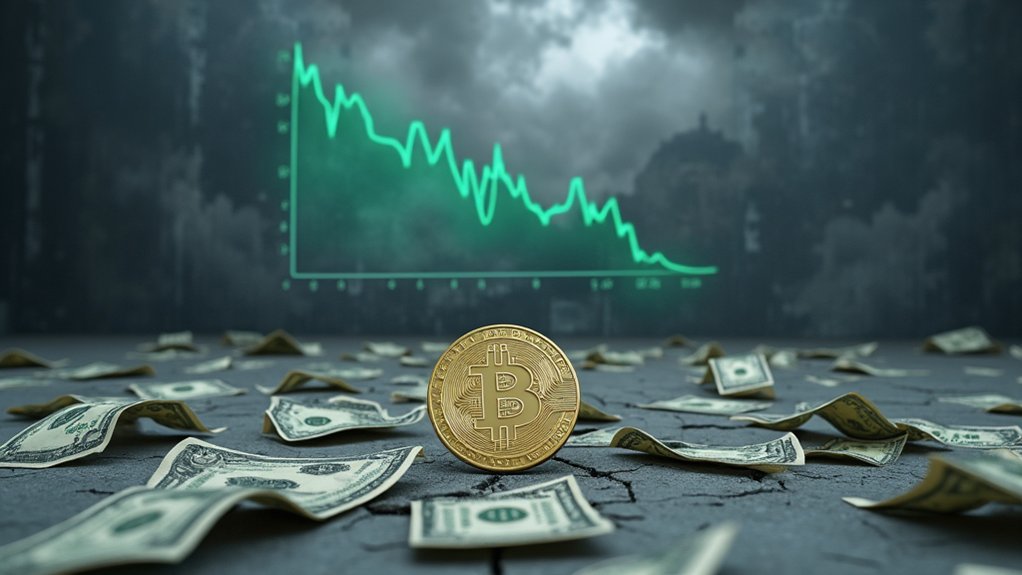Cameron Winklevoss is making some noise about Bitcoin reserves, and it’s hard to ignore. He’s not just tweeting for fun; he’s ringing alarm bells. Countries need to pay attention. Why? Because accumulating Bitcoin is becoming a matter of national security. Think about it—just like rare earth minerals or gold, Bitcoin is climbing the ladder of importance. Countries that don’t secure their stash? They might as well wave goodbye to their financial autonomy.
And let’s be real. Early adopters have the upper hand. Those who wait? They might get slapped with higher costs later. Game theory suggests this isn’t just a casual decision; it’s a strategic necessity. Countries are in a race, and Bitcoin is the finish line. The SEC’s recent decision not to pursue enforcement action against Gemini may provide a more stable environment for countries considering Bitcoin accumulation.
The Winklevoss twins aren’t alone in this sentiment. Big names like Brian Armstrong, CEO of Coinbase, back the idea of a Bitcoin-only U.S. crypto reserve. Armstrong is bold enough to say Bitcoin is the “most reliable store of value,” basically the heir to gold’s throne. Tyler Winklevoss chimes in, stating only Bitcoin is worthy of strategic reserve status. Other coins? Not even close. XRP and ADA? Forget it.
Now, let’s consider the global scene. Inflation is wreaking havoc. Just look at Argentina. Bitcoin is their shield against devaluation, as the accumulation of Bitcoin holdings is rising in importance during times of economic instability. Countries want to enhance their geopolitical influence, and a Bitcoin reserve can help with that. But the clock is ticking. Regulatory risks loom large, and competition is fierce. Nations are scrambling to stockpile before prices skyrocket and availability drops. Bitcoin’s decentralization ensures that no single entity can manipulate its value, making it an attractive option for countries.
Lastly, Bitcoin isn’t just a fad; it’s a technological marvel. Its decentralized and secure nature makes it a standout. It’s more than a digital asset; it’s a potential game-changer. Countries that sit on the sidelines might just find themselves left in the dust. Better to act now than to regret it later.





